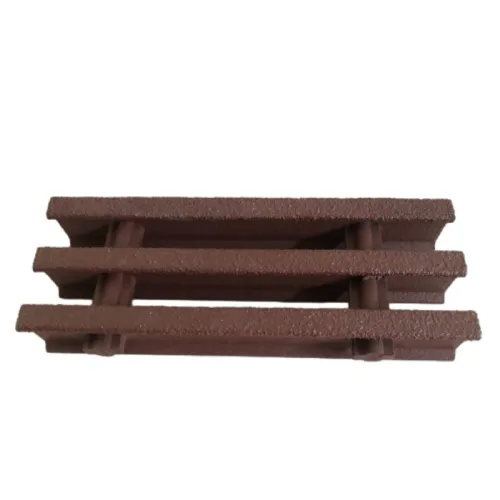loading...
- No. 9, Xingyuan South Street, Dongwaihuan Road, Zaoqiang County, Hengshui, Hebei, China
- admin@zjcomposites.com
- +86 15097380338
- Welcome to visit our website!
water softener and filter system
Understanding Water Softener and Filter Systems A Comprehensive Guide
Water quality is an essential aspect of our daily lives, influencing everything from our health to the efficiency of appliances. Among the various solutions available for improving water quality, water softener and filter systems stand out as two of the most effective.
The Need for Water Treatment
As water travels through pipes, it often picks up various minerals and impurities. Hard water, which contains high levels of dissolved minerals like calcium and magnesium, can cause significant problems. Hard water not only leaves unsightly stains on fixtures and glassware but can also lead to scale buildup in pipes and appliances, reducing their efficiency and lifespan. In contrast, contaminated water can pose health risks, making filtration necessary.
Water Softeners An In-Depth Look
Water softeners work primarily by addressing the hardness of water. The most common method employed in water softeners is ion exchange, which replaces hardness ions (calcium and magnesium) with sodium or potassium ions. This process involves the following steps
1. Pre-treatment Water from the supply enters the softener and flows through a resin tank filled with small beads that are coated with sodium ions. 2. Ion Exchange As hard water passes through the tank, calcium and magnesium ions attach to the resin beads, releasing sodium ions into the water. This process continues until the resin beads become saturated with calcium and magnesium, requiring regeneration.
3. Regeneration Cycle To refresh the resin, a brine solution made from table salt or potassium is introduced. The high concentration of sodium or potassium ions displaces the hardness ions from the resin, allowing them to be washed away, and the cycle starts anew.
The benefits of using a water softener include softer skin and hair, extended lifespan of plumbing systems, lower energy bills due to improved appliance efficiency, and cleaner dishes and laundry.
Water Filters Purifying Your Water Supply
While water softeners tackle the hardness issue, water filters address contaminants, ensuring the water is safe and pleasant to drink
. Various types of water filtration systems are available, each designed to eliminate specific impuritieswater softener and filter system

1. Activated Carbon Filters These filters employ activated carbon to absorb organic compounds, chlorine, and other chemicals that may affect taste and odor. They are commonly found in pitcher filters and faucet-mounted systems.
2. Reverse Osmosis Systems Reverse osmosis (RO) systems push water through a semipermeable membrane, removing up to 99% of dissolved solids, including heavy metals, fluoride, and some microorganisms. This highly effective method is ideal for purifying drinking water.
3. UV Filters Ultraviolet (UV) filters utilize UV light to kill bacteria, viruses, and other pathogens, making them an excellent choice for households relying on well water or for added protection against contaminants.
4. Whole-house Filters These systems are installed at the point of entry of the home and filter all water entering the household, providing comprehensive protection against various impurities.
Combining Water Softeners and Filters
For optimal water quality, many homeowners choose to install both water softener and filtration systems. While water softeners improve the hardness issue, filters ensure safety from contaminants. This combination not only promotes better health but also extends the life of appliances, reduces cleaning time, and enhances the overall quality of water for drinking, cooking, bathing, and washing.
Maintenance and Considerations
While both systems offer considerable benefits, maintenance is key to their effectiveness. Regularly checking the salt levels in water softeners, replacing filters as needed, and ensuring the systems are functioning properly will help maintain water quality.
Before making a purchase, it is essential to assess your water quality through testing to determine what systems are best suited to your specific needs. Many local water utilities provide reports on water quality, and there are also home test kits available.
Conclusion
In conclusion, investing in a water softener and filter system is a proactive step towards ensuring high-quality water in your home. These systems mitigate the problems posed by hard water and contaminants, promoting not only healthier living but also more efficient home maintenance. By understanding and addressing the specific water quality issues in your area, you can enhance the functionality of your home and safeguard your family's health.
-
The Rise of FRP Profiles: Strong, Lightweight, and Built to LastNewsJul.14,2025
-
SMC Panel Tanks: A Modern Water Storage Solution for All EnvironmentsNewsJul.14,2025
-
GRP Grating: A Modern Solution for Safe and Durable Access SystemsNewsJul.14,2025
-
Galvanized Steel Water Tanks: Durable, Reliable, and Ready for UseNewsJul.14,2025
-
FRP Mini Mesh Grating: The Safer, Smarter Flooring SolutionNewsJul.14,2025
-
Exploring FRP Vessels: Durable Solutions for Modern Fluid HandlingNewsJul.14,2025
-
GRP Structures: The Future of Lightweight, High-Performance EngineeringNewsJun.20,2025
